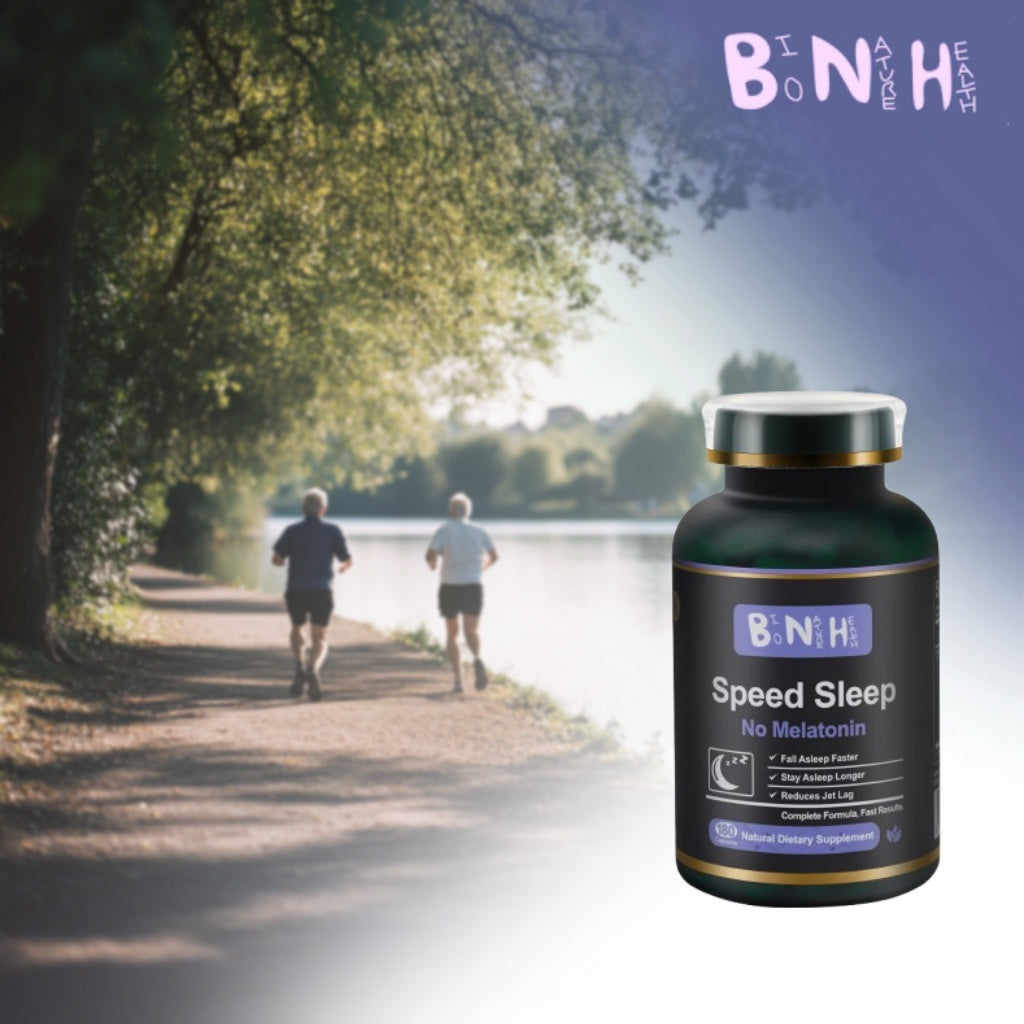Getting quality sleep often feels challenging, and melatonin supplements have become a popular option. Marketed as a “natural” sleep aid, melatonin is widely used by individuals seeking relief from sleepless nights. But what is melatonin, and could regular use lead to dependency or unintended effects? Here, we explore the science behind melatonin and its effects on sleep, based on expert insights and research findings.
Melatonin Basics: The Body’s Own Sleep Hormone
Melatonin is a hormone produced in the brain by the pineal gland, with levels rising naturally in the evening as light dims, signaling to the body that it’s time to wind down. This process is part of the body’s circadian rhythm, which regulates sleep-wake cycles. While melatonin peaks at night, it stays low during the day, helping us remain alert.
For people experiencing sleep challenges, melatonin supplements may seem like a convenient option. These supplements can be particularly helpful for circadian rhythm disruptions, such as jet lag or shift work, or for individuals who may naturally produce lower levels of melatonin. The Sleep Foundation notes that melatonin supplements can modestly reduce the time it takes to fall asleep, especially for those with mild insomnia or disrupted sleep patterns.
Does Melatonin Really Work?
Melatonin can be effective when used appropriately. A review published in *PLOS One* found that melatonin may help people fall asleep about seven minutes faster, on average. While this improvement may be modest, for some, it provides a noticeable benefit.
The American Academy of Sleep Medicine (AASM) suggests that melatonin is most beneficial when taken around an hour before bed. However, experts caution that melatonin’s effect on sleep quality may lessen with long-term use. Dr. Matthew Walker, a neuroscientist and author of *Why We Sleep*, explains that melatonin may be more effective in adjusting sleep timing rather than serving as a long-term solution for chronic insomnia.
Potential Risks: When Melatonin Isn’t the Ideal Solution
Though melatonin is generally considered safe for short-term use, some concerns exist, especially with prolonged use. One issue is that relying on external melatonin may reduce the body’s ability to produce it naturally, making it harder for some individuals to sleep without it. However, this isn’t a “dependence” in the same way as prescription sleep aids.
Dosing is another concern. Melatonin supplements often contain doses higher than what the body produces naturally. While natural melatonin levels peak around 0.3 milligrams, most over-the-counter supplements come in doses of 1-10 milligrams. Research in *The Journal of Clinical Sleep Medicine* suggests that small doses are usually sufficient, and higher doses may increase the risk of daytime drowsiness without improving sleep benefits.
Possible Side Effects and Interactions
Though commonly marketed as “natural,” melatonin can still cause side effects. Regular use of high-dose melatonin may lead to drowsiness, dizziness, or headaches in some users. Melatonin can also interact with certain medications, including blood pressure medications and anticoagulants. The National Institutes of Health (NIH) advises consulting a healthcare provider before starting melatonin, especially for individuals taking prescriptions that affect the nervous or cardiovascular systems.
Alternatives to Melatonin: A Natural Approach to Better Sleep
Some experts suggest trying lifestyle adjustments or non-hormonal supplements for sleep support. Strategies like maintaining a consistent sleep schedule, limiting caffeine and screen time in the evening, and creating a calming pre-bed routine can improve sleep quality.
For individuals seeking a gentle, non-hormonal option, supplements like *Speed Sleep* offer natural ingredients that support relaxation without affecting hormone levels. Formulated with valerian root and chamomile, non-hormonal supplements can help with relaxation without the potential for dependency. According to the NIH, magnesium is another promising supplement for sleep, as it aids in muscle relaxation and can reduce tension.
Is Melatonin Right for You?
Melatonin may be most suitable for occasional use, such as adjusting to a new time zone or stabilizing a disrupted sleep schedule. If regular use is necessary, it might be time to consider other strategies for supporting healthy sleep.
Though melatonin remains a popular choice, it’s essential to remember that it’s not a one-size-fits-all solution. Before adding any supplement to your routine, consult a healthcare provider to discuss potential risks and benefits tailored to your needs. Sustainable improvements in sleep are often rooted in healthy sleep habits rather than solely relying on a supplement—no matter how “natural” it may be.





